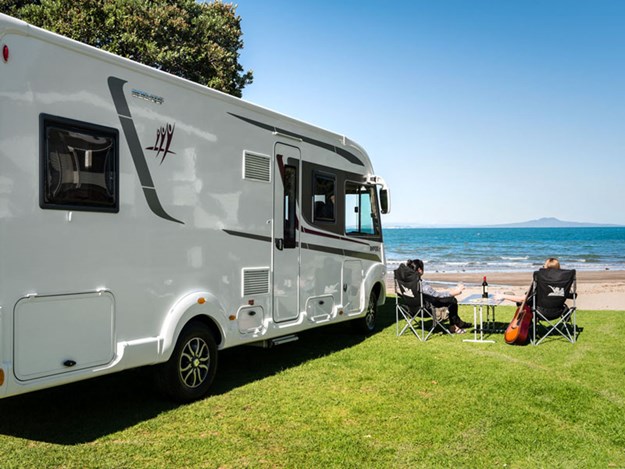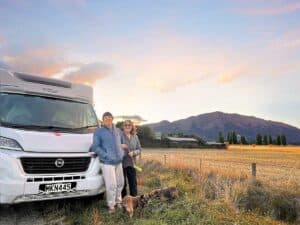
The first few trips away in your new RV can be a steep learning curve. But a bit of time spent getting organised can help pave the way for smooth travels.
Keep your manuals in one place
A good start is to assemble all your equipment manuals together in one place (such as a folder or box).Guided by the manuals go through the controls of each piece of equipment so you know how it operates. Whether it is converting the dinette to a bed or checking the battery condition it is much easier to do if you have already read the manual and done a dummy run.
Pay particular attention to the cab blinds/screens, control panels, the hot water system, the house heater, the oven, the fridge, the LPG supply, and the house batteries/solar panel system. Should you need more help, YouTube is helpful.
Pack light
When setting up your new RV with crockery and cooking equipment etc, always pack ‘light’. Think melamine crockery instead of china. The same applies to clothing, toiletries and bedding. Wherever possible, use synthetics.Not only are they lighter, they dry quicker after washing. Make ‘pack light, minimum number’ your loading mantra. Don’t forget to carry out a vehicle check including the radiator, battery and, particularly for caravans, tyre pressures.
Pre-departure checks
If your RV and house batteries have been hooked up to the grid, the batteries should be fully charged. If not, you may need the assistance of an auto electrician to sort out the problem before you can depart.Check the levels of your LPG bottles and get refills if necessary. And while you are at it, if you have an LPG fridge, it’s a good idea to turn it on and load it up 24hrs prior to departure. Check that your grey water and toilet cassette are empty and that you have 20-30 litres of fresh water aboard.
Check also that you are stocked up with your RV specific supplies; toilet chemicals, water treatment chemicals and water filters (if you use them). As a mental exercise, review dump station procedures and if in doubt refresh your memory on the NZMCA’s online user guide. This section of the website is available to non-members.
Checklists are useful tools, so it’s worthwhile creating a few to help ensure you remember everything necessary in busy situations such as arriving/departing campsites, pre-departure checks etc. They remind us of things we might otherwise forget when under the stress of new experiences.
Safety tips
Prior to departure, discontinue mail and newspaper deliveries or get someone to clear your mailbox regularly.Let your family or neighbours know when you plan to return. Make sure you have with you your keys for the external hatches, water filler cover and habitation door.
Also get a couple of extra habitation door keys cut, one for you and one for your better half to put on your car keyrings. Stay locally first night away from home if you can. That way, you can nip home to get or do what you have forgotten.
Or, if it is more serious, you can get your local RV service people make things right. And when time comes to move on, consult your pre-prepared ‘Leaving a campsite’ checklist so you don’t leave anything behind.
Top of the ‘left behind list’ are; washing on the line, mats and steps, caravaners water and waste tanks, wheel chocks and electrical leads. And when the good Samaritan who rescues it tries to return it to its owner, odds on there is nothing on the item to say who owns it or how to contact them.
Make sure all your gear has your name and phone number on it. Take the manuals with you, re-reading them is time well spent. It could mean you spend a warm night instead of a cold one if your heater plays up on a winter’s night at Tongariro National Park.
Find motorhomes, RVs & caravans for sale in NZ





